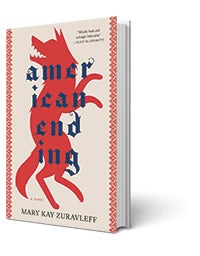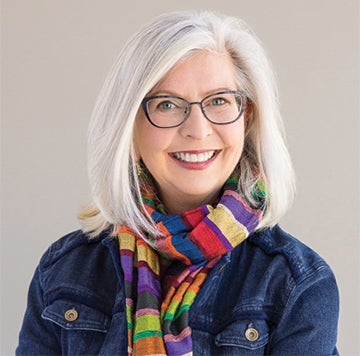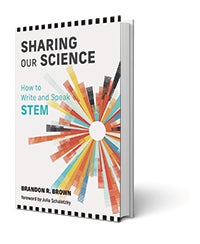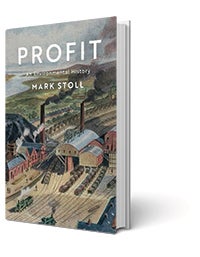Alumni Books and Music
Recent publications and musical works by Rice alumni
Winter 2024 | By Hilary Ritz
Now Reading

American Ending
Mary Kay Zuravleff ’81
Blair, 2023
Mary Kay Zuravleff’s grandparents on both sides of her family lived in the Appalachian mining town of Marianna, Pennsylvania, at the turn of the 20th century. They were Russian Orthodox immigrants living hardscrabble lives; the men worked and died in the coal mines and the girls were married off at 14. Relying on the experiences of her family members and those like them, Zuravleff invested eight years in writing a richly detailed, immersive literary novel, “American Ending,” and the hard work paid off with a mention on the Oprah Daily spring reading list in 2023. We talked to Zuravleff about the research for her book and the lives of the people she wrote about — and the parallels with immigrants to the U.S. today.
I agree with the reviewer who said you must have time-traveled to write this book. How much research did you do, and how much did you learn from your family?
Well, the book takes place a hundred years ago, so a lot of those people are gone, but I did grow up knowing both sets of grandparents and also great-aunts and -uncles. I heard a lot of stories. My grandfather on my mother’s side had black lung from working in the mines. My grandmother went to the foreman and said, “You will pay him in money and not scrip.” And my grandmother on my dad’s side lost her citizenship because she married my grandfather [who was born in Russia]. All those things are in the novel.
I had to do a tremendous amount of research on Marianna, Pennsylvania. I certainly didn’t know how people lived in the mines or how the houses were built up the hill. I did a lot of mining research: How much did a miner make? What did they eat for breakfast? What happens in an explosion or a cave-in? That took a lot of work.
When you set out to write the book, were you thinking about the parallels between immigration back then and immigration today?
This book became more and more tied to what was going on, so much so that one day, I was typing about the pandemic and immigration issues in 1919, and I typed “2019.” I was stunned that a hundred years later, so many things were the same — and tragically the same.
But I started it because there were no books on the shelf about these people. I wanted to tell their stories. And then the notion of my grandmother losing her citizenship because she married my grandfather — that made the book essential. It was just a refrain in our heads. Family members would say, “Ma lost her citizenship when she married Pa.” You hear things your whole life, and then you wake up one day and say, “What? Wait a minute. What does that mean?” And to see the 1920 census entry for my grandmother, where it says “Born in Pennsylvania” next to where it classifies her as “Alien” — then I had to write the book. That made me mad.

Was she able to regain her citizenship later?
Women lost their citizenship for marrying a foreign-born man. Men did not. That was in 1907. In 1922, when the Cable Act was enacted, those women didn’t get their citizenship reinstated. They were allowed to apply to be naturalized if their husband had his citizenship. Though my grandfather became a citizen, my grandmother never did. I don’t know why. She had 11 children; that could be one reason.
How did your time at Rice inform your writing career?
I studied with Max Apple, who was exquisite, and he has an amazing imagination. He is something of a magical realist in the vein of Isaac Singer; he’s fanciful but also poignant. And he was the only writing teacher at Rice. Now, Rice has a wonderful and diverse faculty in writing.
What do you want to say about immigration, then and now?
I have told people how my grandmother lost her citizenship, and they have said, “No, that didn’t happen.” We didn’t learn that in history class. And where do you hear what we did to Native Americans, to African Americans, to Chinese Americans? I wasn’t taught anything about that exclusionary treatment in school. That’s another way to use this book: as an introduction to what else don’t we know — or acknowledge — about our own country?
I was able to visit two high school classes recently who read the book, and it was astonishing. My writing prompt to them was to write your American ending. An African American student wrote, “My American ending is to live a long life and not be shot in my 20s.” And another student wrote, “My American ending is to go back to Guatemala and a simpler life.” That’s a complicated American ending. One young woman wrote, “My American ending is to get my family here from Haiti.” This is an average American classroom. I was blown away. These students are seeing themselves in the book, so I don’t have to point out the parallels. They’re seeing themselves.

Sharing Our Science
How to Write and Speak STEM
Brandon R. Brown ’92
MIT Press, 2023
As a physics professor who earned his doctorate studying vortex dynamics in superconductors, Brandon Brown has spent a career immersed in the kind of jargon that makes most people’s eyes glaze over — and he’s done something about it. “Sharing Our Science” takes its own advice by using metaphors, personal anecdotes and expert stories to help readers master the challenges of scientific communication. Nature Physics describes it as “required reading for scientists at any stage of their careers.”

Profit
An Environmental History
Mark Stoll ’77
Polity Books, 2023
Mark Stoll’s “Profit” is a sweeping yet impressively detailed history of economics that centers the chilling environmental consequences of humanity’s march toward progress. Modern consumer capitalism was hardly inevitable, Stoll concludes, but now it is like a shark that cannot stop swimming lest it die. The question is how to keep it moving without consuming the Earth’s resources in the process.
Now Listening

Do Not Lament
Rebecca Scout Nelson ’14
Il Pirata Records, 2023
“Do Not Lament,” the debut album from Rebecca Scout Nelson, may be unlike anything you’ve ever heard before. Despite a wide variety of musical influences — most notably bluegrass and Baroque — the album’s reliance on early instruments like the archlute, theorbo, harpsichord and viola da gamba results in an unmistakably Baroque sound throughout. Above the small ensembles floats Nelson’s honeyed, lilting voice, which at times touches the ethereal while still remaining warmly intimate.
Originally from Germany, Nelson discovered her love of early music and the Baroque violin in the U.S., where she earned her bachelor’s in violin at the Shepherd School of Music and a master’s at the University of Oklahoma before completing the historical performance program at Juilliard. “Do Not Lament” displays Nelson’s considerable talent and passion for early music as it tells the story of her grieving process for her younger sister, who died of cancer at only 24.
The album presents a skillful mix of 10 short original instrumental works, arrangements of four period pieces with personal meaning, and four original songs with lyrics in English, all carrying the same remarkable signature. Hauntingly beautiful at times, joyful and lively at other moments, the music moves — not directly, but in the uncertain and halting path that grief often takes — toward vitality. As Nelson sings, “What a beautiful mess life can be.”
The album was recorded by Il Pirata Records, founded just two years ago by Richie Hawley, professor of clarinet at the Shepherd School of Music. Though Il Pirata so far has only four records in its catalog, its recording of “Do Not Lament” accomplishes the label’s stated mission by immersing the listener fully in the crystalline music, as if one sat “right there” on stage with Nelson and her fellow musicians. Listening straight through, undistracted, is a beautiful journey.
